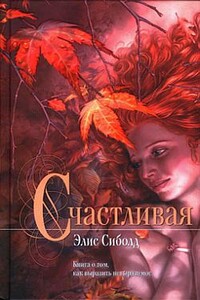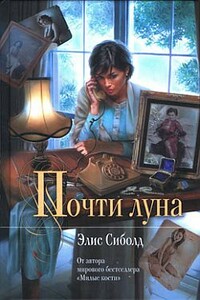By the time she landed in Chicago with a two-hour wait, she had steadied herself enough to buy a toothbrush and a pack of cigarettes and place a call to the hospital, this time asking to speak to Grandma Lynn.
“Mother,” my mother said. “I’m in Chicago and on my way.”
“Abigail, thank God,” my grandmother said. “I called Krusoe again and they said you were headed for the airport.”
“How is he?”
“He’s asking for you.”
“Are the kids there?”
“Yes, and Samuel. I was going to call you today and tell you. Samuel has asked Lindsey to marry him.”
“That’s wonderful,” my mother said.
“Abigail?”
“Yes.” She could hear her mother’s hesitation, which was always rare.
“Jack’s asking for Susie, too.”
She lit a cigarette as soon as she walked outside the terminal at O’Hare, a school tour flooding past her with small overnight bags and band instruments, each of which had a bright yellow nametag on the side of the case. HOME OF THE PATRIOTS, they read.
It was muggy and humid in Chicago, and the smoky exhaust of double-parked cars made the heavy air noxious.
She burned through the cigarette in record time and lit another, keeping one arm tucked hard across her chest and the other one extended on each exhale. She was wearing her winery outfit: a pair of faded but clean jeans and a pale orange T-shirt with KRUSOE WINERY embroidered over the pocket. Her skin was darker now, which made her pale blue eyes seem even bluer in contrast, and she had taken to wearing her hair in a loose ponytail at the base of her neck. I could see small wisps of salt and pepper hair near her ears and at her temples.
She held on to two sides of an hourglass and wondered how this could be possible. The time she’d had alone had been gravitationally circumscribed by when her attachments would pull her back. And they had pulled now – double-fisted. A marriage. A heart attack.
Standing outside the terminal, she reached into the back pocket of her jeans, where she kept the man’s wallet she had started carrying when she got the job at Krusoe because it was easier not to worry about stowing a purse beneath the bar. She flicked her cigarette into the cab lane and turned to find a seat on the edge of a concrete planter, inside of which grew weeds and one sad sapling choked by fumes.
In her wallet were pictures, pictures she looked at every day. But there was one that she kept turned upside down in a fold of leather meant for a credit card. It was the same one that rested in the evidence box at the police station, the same one Ray had put in his mother’s book of Indian poetry. My class photo that had made the papers and been put on police fliers and in mailboxes.
After eight years it was, even for my mother, like the ubiquitous photo of a celebrity. She had encountered it so many times that I had been neady buried inside of it. My cheeks never redder, my eyes never bluer than they were in the photograph.
She took the photo out and held it face-up and slightly cupped in her hand. She had always missed my teeth – their small rounded serrations had fascinated her as she watched me grow. I had promised my mother a wide-open smile for that year’s picture, but I was so self-conscious in front of the photographer that I had barely managed a close-lipped grin.
She heard the announcement for the connecting flight over the outdoor speaker. She stood. Turning around she saw the tiny, struggling tree. She left my class portrait propped up against its trunk and hurried inside the automatic doors.
On the flight to Philadelphia, she sat alone in the middle of a row of three seats. She could not help but think of how, if she were a mother traveling, there would be two seats filled beside her. One for Lindsey. One for Buckley. But though she was, by definition, a mother, she had at some point ceased to be one too. She couldn’t claim that right and privilege after missing more than half a decade of their lives. She now knew that being a mother was a calling, something plenty of young girls dreamed of being. But my mother had never had that dream, and she had been punished in the most horrible and unimaginable way for never having wanted me.




